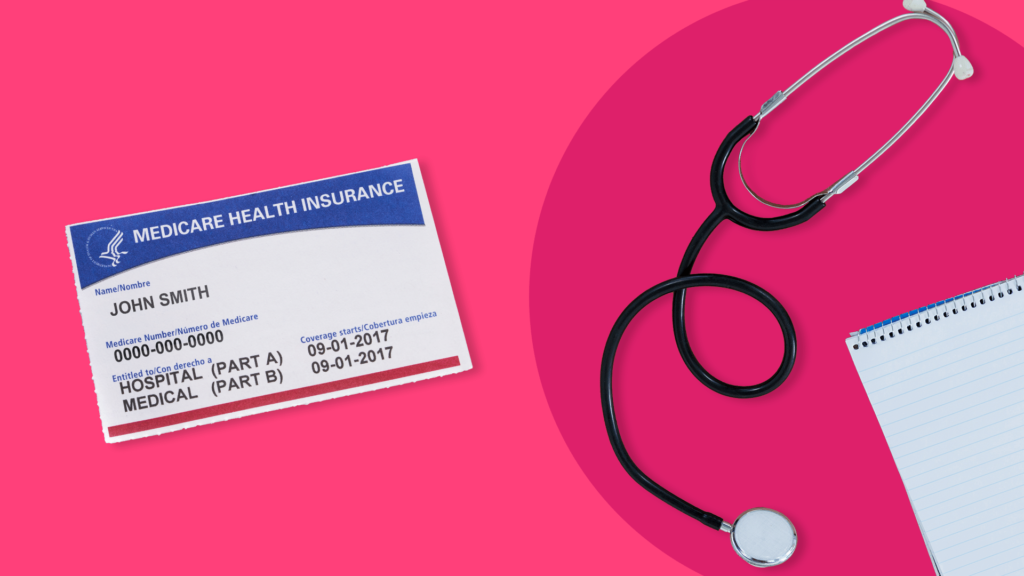Can You Get Medicare Advantage If You’ve Worked Less Than 10 Years?

Medicare Advantage (MA), provided by private insurance companies, combines the benefits of Original Medicare Parts A and B into a single, convenient plan. These plans frequently offer added benefits such as prescription drug coverage, dental, vision, and wellness programs. A common concern is whether someone with less than 10 years of work history can still qualify for Medicare Advantage.
Let’s explore how this works and what options exist for those without the standard 10-year work requirement.
Why Should You Consider Medicare Advantage?
Medicare Advantage plans offer several notable benefits, making them a popular choice regardless of work history:
- Additional Coverage: Often includes dental, vision, hearing, and prescription drug coverage not offered by Original Medicare.
- Cost Efficiency: Usually lower monthly premiums and out-of-pocket limits compared to Original Medicare.
- Coordinated Care: Comprehensive networks ensure streamlined healthcare management.
Medicare Advantage Eligibility Criteria
To enroll in a Medicare Advantage plan, you must first be enrolled in Medicare Parts A and B. Eligibility typically requires accumulating 40 work credits (10 years of work history) through Medicare taxes. However, there are important exceptions for individuals who haven’t met this requirement.
Can You Enroll in Medicare Advantage with Less Than 10 Years of Work?
Yes. Here are key exceptions and alternative pathways to eligibility:
1. Spousal Eligibility
Even if you personally haven’t accumulated 10 years of work history, you can still qualify through a spouse (current, divorced, or deceased). To qualify via spousal eligibility:
- Your spouse must be at least 62 years old.
- They must have contributed Medicare payroll taxes for at least 10 years (40 quarters).
Spousal eligibility helps you access premium-free Medicare Part A, subsequently enabling enrollment in Medicare Advantage.
2. Disability Eligibility
Individuals receiving Social Security Disability Insurance (SSDI) benefits for 24 months are eligible for Medicare, regardless of work history. Specific conditions include:
- End-Stage Renal Disease (ESRD): Immediate Medicare eligibility upon diagnosis.
- Amyotrophic Lateral Sclerosis (ALS): Immediate Medicare eligibility starting from the month disability benefits begin.
Once enrolled in Medicare through disability, individuals can access Medicare Advantage plans.
3. Paid-Premium Medicare Part A Option
If you or your spouse haven’t earned enough work credits, you can still enroll in Medicare by paying monthly premiums for Part A:
- Monthly premiums range between $285 and $518, depending on your accumulated work credits.
- Enrollment in Medicare Part B (medical coverage) is mandatory, with a monthly premium (standard rate: $185 in 2025; higher for high-income earners).
Paying these premiums allows enrollment in Medicare Advantage plans.
Special Enrollment Periods (SEPs)
Individuals with fewer than 10 years of work history might also use Special Enrollment Periods to join Medicare Advantage plans outside standard enrollment windows. Qualifying events include:
- Losing employer-sponsored health insurance
- Moving outside your plan’s coverage area
- Changes in Medicaid eligibility
- Qualifying for Extra Help or Low-Income Subsidies (LIS)
Alternative Healthcare Options
If Medicare Advantage isn’t an option due to insufficient work history, consider these alternatives:
1. Medicaid
A state and federal program offering healthcare coverage for low-income individuals, retirees, and families. Eligibility varies by state, income, and household size.
2. State Healthcare Programs
Many states offer specialized healthcare programs providing similar benefits to Medicare Advantage for eligible low-income residents.
3. Employer-Sponsored Health Insurance
Employer-provided plans can be an effective alternative, often providing extensive coverage comparable to Medicare Advantage.
Can You Get Medicare Without Ever Working?
Yes, you can. However, without work credits (or a spouse’s work credits), you’ll typically pay premiums for Medicare Part A and Part B. If your spouse worked at least 10 years, you may access premium-free Part A coverage.
Applying for Medicare While Still Working
You can apply for Medicare at age 65, even if you’re still working. Your Initial Enrollment Period (IEP) begins three months before turning 65 and ends three months after your birthday month. If you miss this period, you can enroll during the General Enrollment Period (January 1 – March 31).
Professional Medicare Assistance in New York: Plan Medicare
Navigating Medicare options can feel overwhelming, especially without meeting the standard work history requirement. At Plan Medicare, our licensed New York-based advisors offer personalized guidance tailored to your specific needs.
Call us today at 516-900-7877 for a free, professional consultation or schedule an appointment online.
Frequently Asked Questions (FAQs)
What is the 10-year rule for Medicare?
The 10-year rule refers to needing 40 quarters of Medicare payroll taxes paid by yourself or your spouse to qualify for premium-free Medicare Part A.
Can I switch from Original Medicare to Medicare Advantage if I’ve worked less than 10 years?
Yes. If you’re enrolled in Original Medicare (by any eligibility method), you can freely switch to Medicare Advantage during annual enrollment periods.
What happens if I don’t have required work credits for Medicare?
You can still enroll by paying monthly premiums for Medicare Part A and mandatory Part B premiums.
Can I get Medicare if I never paid into Social Security?
Yes, via spousal eligibility or if you have certain medical conditions like ESRD or ALS.






